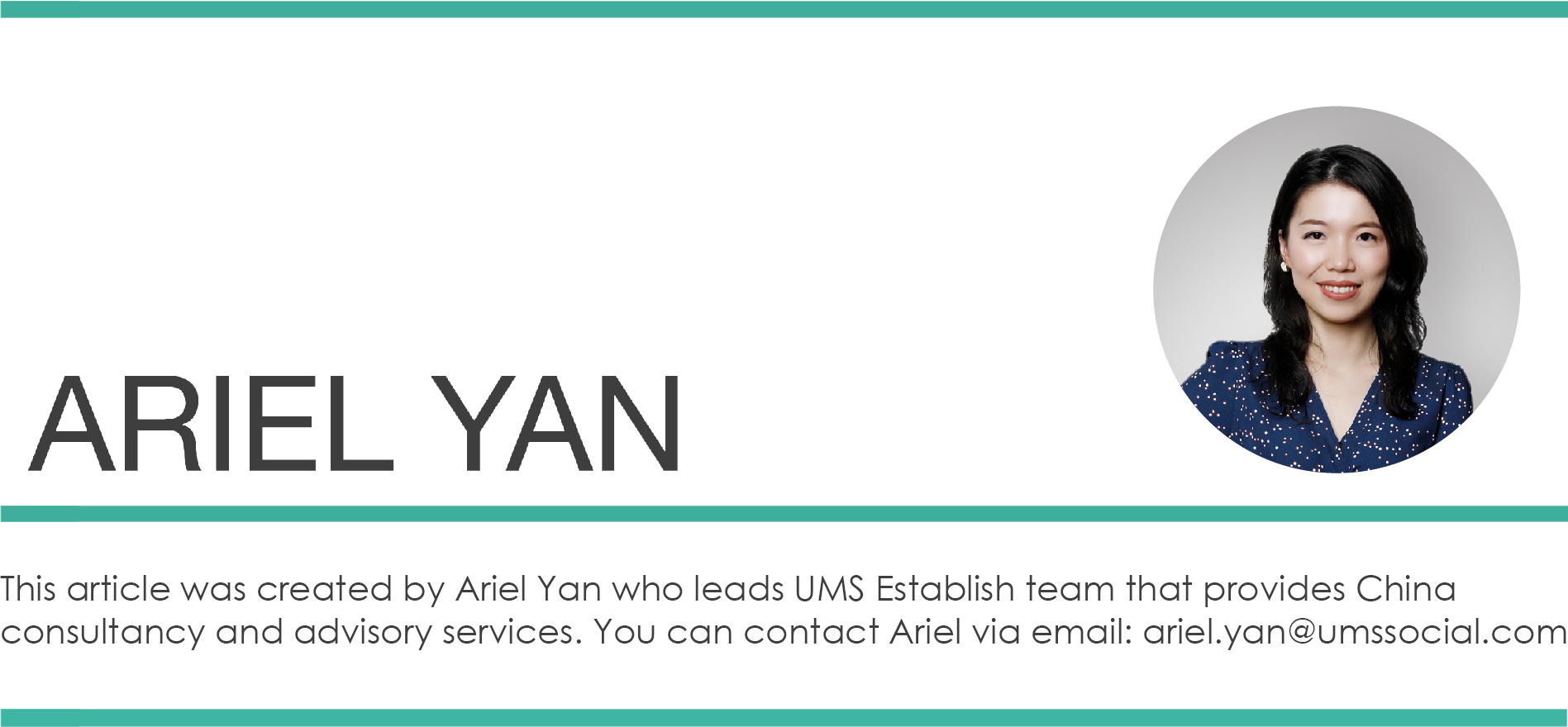

To give a general idea of what’s in the UMS’ bespoke China Daily Morning Brief, a daily email service focused on four industry categories – Education, Tourism, Food & Beverage, and Health & Skincare, I decided to write a summary of the July insights our team published. The Morning Brief reports on the latest buzz on social media and what topics have been discussed most in China’s market. Providing a broad reference for four different industries: education, travel, food and beverage, and health and wellness, the publication enables brands to make proactive strategic decisions. Let’s take a look at some of the themes that were highlighted in August’s publications.
1. Education industry
In August, it was widely discussed that some policies have seriously hampered relationships between China and the U.S. A great number of Chinese students are limited by these policies, meaning they are not allowed to go back to U.S foreign universities. The number of international students in the United States fell in 2020 for the first time in more than a decade. On June 3, 2020, Trump issued U.S Executive Order No. 10043, banning certain Chinese students from obtaining visas in the name of national security. The effect of the ban continues today, with thousands of Chinese students’ visas being denied. In July, the US pledged to take steps to encourage international students to study in the U.S and global scholars to participate in academic exchanges. Last month, once the U.S announced that international students could return, check-in lines at Shanghai Pudong Airport were nearly kilometres long due to a lengthy and complicated check-in process.
New Zealand’s border remains closed to international students which may impact international students’ decision to study there. Many New Zealand universities have had to strategically assess how they can reach this important cohort of students. To help students achieve their academic and career goals while studying abroad, the University of Auckland has developed Auckland Advantage™, an online learning support program that includes online learning, accommodation and career support. In addition, Waikato University College Shanghai Learning Centre will open in September in China. All students will be required to live on campus and a wide range of campus facilities will be provided, from libraries to sports facilities.
2. Travel industry
New Zealand’s tourism industry has been hit by the severity of the outbreak and strict border control measures have slashed international visitor numbers. Some tourism companies estimate that they are now operating at about 10% of its pre-pandemic level. In August, New Zealand announced that the country was not ready to fully reopen, but that border settings could be relaxed in phases starting early next year. The government would move to a new quarantine-free travel model based on individual risk. However, a delta outbreak at the end of the month sent the nation into an immediate lockdown and has put these plans in jeopardy.
3. Food and beverage industry
August continued to bring interesting developments to the plant-based food market. On July 26, the plant-based beverage brand ‘Summer Wind’ officially released its first product – ‘Low Sugar Coconut Juice’. This product is the only coconut milk in China that ranks NFC coconut water at the top of the ingredient list. Also, Australian plant meat company v2food announced that it has completed nearly 350 million yuan in B+ round of financing. v2food said that this financing will promote the company’s expansion of the Chinese market and launch new localized products.
The top local plant meat brand STARFIELD officially announced its cooperation with Luckin Coffee to launch Luckin Coffee’s first plant meat product “Lime Flavour Sandwich” and “Egg Flavoured Cereal Sandwich”. These market developments signal the increasing desire for plant based products in China. However, in addition to taste and cost performance, factors such as safety and nutritional value also determine to what extent plant-based meat can be accepted by Chinese consumers.
4. Health & Wellbeing
China’s maternal and infant market continues to grow due to changes in the birth rate and the rise of mobile internet. Millennial mothers who grew up in a material-rich environment have a strong sense of health and attach great importance to their own diet and nutrition. Therefore, millennial mothers have decreased price sensitivity when purchasing products for their children and choose specialised and high-end brands. The overall maternal and infant consumer market has begun to develop towards more specialised and high-end products which focus on function and healthy development.
In terms of their own health, this consumer group has become the group most anxious about their own health. Keywords like, “anti-sugar”, “fat reduction”, “whitening”, “anti-ageing”, and “brain supplementing” have become important terms. After the outburst of the epidemic, 95% of Chinese consumers believe that health includes taking care of all aspects of themselves, namely physical and mental health. Consumers prefer to “enhance health by eating”, boosting the demand for supplements and functional foods. Functional foods are the future of health for the post 90’s generation. During the “Double 11” period in 2020, among the top 100 brands in the total sales of food and beverage categories, 20 of them are functional nutrition retail brands.
END.














